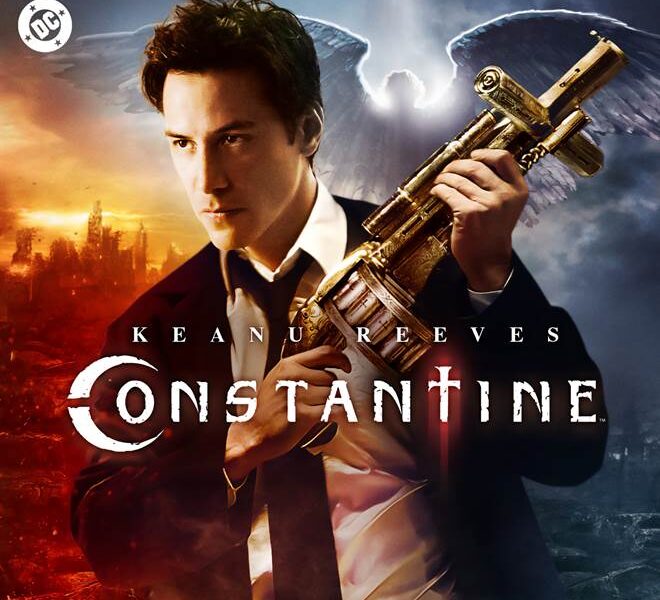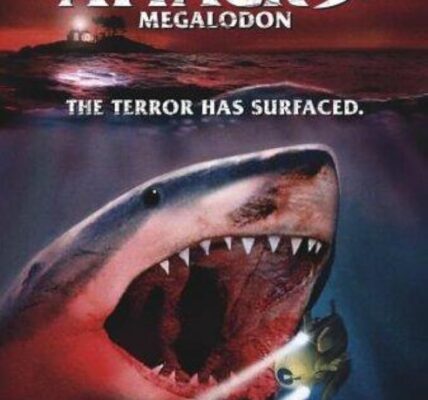1. Plot Summary
Constantine follows John Constantine (Keanu Reeves), a cynical, world-weary occult detective / exorcist who can see demons and half-angels walking in human form. He’s haunted by a past suicide attempt and is terminally ill with lung cancer, giving him urgency: he’s trying to earn redemption and a chance to avoid damnation.
He is drawn into the case of Angela Dodson (Rachel Weisz), an LAPD detective investigating the apparent suicide of her twin sister, Isabel (also played by Weisz). Angela suspects there is more than meets the eye. Constantine and Angela team up to uncover a supernatural plot: Mammon, Lucifer’s son, seeks to cross into the human realm using Isabel’s body as a conduit, aided by demonic forces. Constantine must fight to stop Mammon’s incursion, confront the angel Gabriel (Tilda Swinton), and confront his own fate.
The setting alternates between the gritty streets of Los Angeles, occult underworld locales (nightclubs, demon lairs), and mystical visions.
2. Notable Elements
What stands out / strengths
- Atmosphere & tone: The film has a dark, noir-inflected supernatural tone that feels different from standard superhero fare. It leans more into horror, occult, and metaphysical thriller.
- Special effects & creature design: The depiction of demons, the visual representation of Hell / infernal imagery, and transitions between realms are ambitious. Horror Movie Talk praises that much of the CGI and monster design still holds up.
- Performances & casting: Reeves brings a weary, resigned charisma to Constantine, someone who’s done with the world yet still forced to fight. Weisz provides emotional grounding as Angela — her dual role (twins) lends weight to the mystery. Tilda Swinton is striking as Gabriel. The supporting cast (Shia LaBeouf as Chas, Peter Stormare as Lucifer, Djimon Hounsou, etc.) adds dimension.
- Blend of genres: Constantine is not just a superhero movie; it marries comic-book elements with horror, theology, detective noir. That gives it a unique edge.
- Moral ambiguity & depth: The film explores sin, redemption, free will, and the costs of choices. Constantine’s conflict is not just external but internal.
What doesn’t quite land / weaknesses
- Plot complexity & exposition overload: The film packs in a lot of mythology, theological rules, shifting allegiances, which can feel confusing at times. Metacritic and critics mention that it “drags” or that layers of supernatural lore pile on.
- Inconsistent writing / uneven demons: Some demon encounters or confrontations feel underwhelming or underdeveloped. The Ultimate Rabbit remarks that demons sometimes don’t feel compelling enough as adversaries.
- Character underuse: Certain characters (e.g. Gabriel, Isabel, some of the lesser demons) could have had more depth. The shift between characters sometimes leaves emotional arcs less polished.
- Tone shifts & ambition taxing coherence: At times the movie swings between action, horror, spiritual monologues, and spectacle; balancing those is ambitious but sometimes leads to tonal friction.
3. Themes and Messages
- Sin, redemption, and damnation: Constant ine’s quest is fundamentally a moral one. Having attempted suicide (a sin in many theological contexts), he seeks to redeem himself and avoid Hell. The film wrestles with whether good deeds done for self-serving reasons count.
- Free will & cosmic warfare: Angels, demons, and supernatural forces are engaged in a proxy war over human souls. Constantine operates in a realm between Heaven and Hell, making choices in a morally gray zone.
- Faith, belief, and doubt: Angela’s journey includes coming to terms with her sister’s faith, the supernatural claims, and shifting what she trusts. The film probes belief as both strength and vulnerability.
- Sacrifice & mortality: Constantine is dying; time is short. His fight is both for others and for his own fate. The idea that sacrifice may be needed to save or redeem is central.
- The hidden battle behind the mundane: Much of humanity is unaware of the spiritual conflict. Constantine sees what others cannot.
As for holiday sentiment: This is not a holiday film, but its themes of redemption, sacrifice, confronting darkness, and hope in the midst of despair resonate with many spiritual / reflective narratives tied to festive times. The idea of choosing goodness even when burdened is not far from many holiday stories about renewal.
4. Personal Impressions
What I liked:
- I appreciate its ambition. It reaches not just for spectacle but for exploration of theology, guilt, and moral struggle.
- The visuals and mood work well — some of the demon scenes and transitions are genuinely unsettling.
- Reeves is well cast in this role; his weariness, cynicism, and rare flashes of passion suit the character.
- Some moments (e.g. Gabriel’s confrontations, Lucifer’s appearance) are memorable and iconic in their daring.
What I felt was weaker:
- Sometimes I got lost in the lore: what rules govern the supernatural, who can do what, when things shift. I wished more clarity or consistency.
- The later act feels slightly overloaded with revelations and confrontations; momentum dips for me.
- Some villain/demon moments feel less threatening than they could be, so tension wanes in parts.
- Emotional payoffs: because certain characters aren’t deeply explored, their arcs sometimes lack full weight.
5. Audience Recommendations
You’ll especially enjoy Constantine if you:
- Like supernatural, occult, or horror-tinged fantasies with theological depth.
- Are a fan of comic books / adaptations that go darker, more adult, more morally ambiguous.
- Appreciate stories that blend action, detective work, philosophy, and horror rather than pure superhero spectacle.
- Want to see strong casting (Reeves, Weisz, Swinton) in risky genre material.
It might not appeal as much if you:
- Prefer clean, tightly plotted superhero movies with clear moral lines.
- Dislike films with frequent lore exposition, shifting supernatural rules, or ambiguity.
- Avoid religious / spiritual themes, especially ones depicting cosmology (angels, demons, Hell).
6. Conclusion & Rating
Constantine (2005) is a flawed but fascinating film. It does not always stick the landing, and its narrative ambitions sometimes strain coherence. But its visual audacity, thematic weight, strong performances, and riskiness make it more than a run-of-the-mill comic adaptation. It has earned a cult status for good reason.
Final Recommendation: Worth watching, especially for fans of darker supernatural cinema. Go in ready to embrace ambiguity and spectacle.
Star Rating: ★★★★☆ (4.0 / 5)
Watch more:




